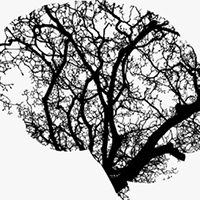Further data on the reliability of the mentalization imbalances scale and of the modes of mentalization scale

Submitted: January 22, 2020
Accepted: April 8, 2020
Published: May 21, 2020
Accepted: April 8, 2020
Abstract Views: 813
PDF: 513
HTML: 28
HTML: 28
Publisher's note
All claims expressed in this article are solely those of the authors and do not necessarily represent those of their affiliated organizations, or those of the publisher, the editors and the reviewers. Any product that may be evaluated in this article or claim that may be made by its manufacturer is not guaranteed or endorsed by the publisher.
All claims expressed in this article are solely those of the authors and do not necessarily represent those of their affiliated organizations, or those of the publisher, the editors and the reviewers. Any product that may be evaluated in this article or claim that may be made by its manufacturer is not guaranteed or endorsed by the publisher.
Similar Articles
- Emanuela Saita, Martina Tramontano, Navigating the complexity of the therapeutic and clinical use of photography in psychosocial settings: a review of the literature , Research in Psychotherapy: Psychopathology, Process and Outcome: Vol. 21 No. 1 (2018)
- Claudia Capella, Carolina Gutiérrez, Loreto Rodrìguez, Camila Gòmez, Change during psychotherapy: the perspective of children and adolescents who have been sexually abused , Research in Psychotherapy: Psychopathology, Process and Outcome: Vol. 21 No. 1 (2018)
- Jose L. Vilchez, Mental footnotes: knowledge constructivism from logical thinking to personal beliefs and therapy , Research in Psychotherapy: Psychopathology, Process and Outcome: Vol. 19 No. 2 (2016)
- Vera Luisa König, María Isabel Fontao, Leandro Martín Casari, Alejandra Ruth Taborda, Psychotherapists’ experiences of telepsychotherapy during the COVID-19 pandemic in Argentina: impact on therapy setting, therapeutic relationship and burden , Research in Psychotherapy: Psychopathology, Process and Outcome: Vol. 26 No. 1 (2023)
- Cristina Marogna, Chiara Masaro, Vincenzo Calvo, Simona Ghedin, Floriana Caccamo, The extended unconscious group field and metabolization of pandemic experience: dreaming together to keep cohesion alive , Research in Psychotherapy: Psychopathology, Process and Outcome: Vol. 25 No. 3 (2022): SPECIAL ISSUE: "Group psychotherapy: between settled benchmarks and new horizons"
- Rolf Sandell, Rating the outcomes of psychotherapy or psychoanalysis using the Change After Psychotherapy (CHAP) scales. Manual and commentary , Research in Psychotherapy: Psychopathology, Process and Outcome: Vol. 18 No. 2 (2015): Special issue on Qualitative and Quantitative Research in Child and Adolescent Psychotherapy: part 1
- Jung Ki Kim, Eileen M. Crimmins, Age differences in the relationship between threatening and coping mechanisms and preventive behaviors in the time of COVID-19 in the United States: Protection Motivation Theory , Research in Psychotherapy: Psychopathology, Process and Outcome: Vol. 23 No. 3 (2020)
- Mario Fulcheri, Danilo Carrozzino, The clinical consequence of positive mental health in psychotherapy , Research in Psychotherapy: Psychopathology, Process and Outcome: Vol. 20 No. 2 (2017)
- Lucia Nuñez, Sofía Fernández, Nicolle Alamo, Nick Midgley, Claudia Capella, Mariane Krause, The therapeutic relationship and change processes in child psychotherapy: a qualitative, longitudinal study of the views of children, parents and therapists , Research in Psychotherapy: Psychopathology, Process and Outcome: Vol. 25 No. 1 (2022)
- Jan Roubal, Roman Hytych, Michal Čevelíček, Tomáš Řiháček, Personal therapeutic approach in Gestalt therapists working with clients suffering from medically unexplained psychosomatic symptoms , Research in Psychotherapy: Psychopathology, Process and Outcome: Vol. 24 No. 3 (2021)
<< < 9 10 11 12 13 14 15 16 17 18 > >>
You may also start an advanced similarity search for this article.

 https://doi.org/10.4081/ripppo.2020.450
https://doi.org/10.4081/ripppo.2020.450




